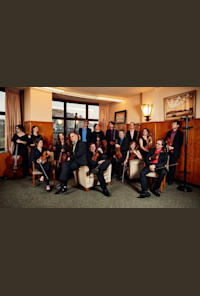

Pasja wg św. Jana. I Ty musisz cierpieć
Compartir
International Festival Wratislavia Cantans (2016)
Información de la organización artística (Verificado por Operabase)
Pasja wg św. Jana. I Ty musisz cierpieć by Various, dom. 11 sep 2016, De (2016/2016), Director Andreas Spering, NFM (Narodowe Forum Muzyki), Breslavia, Polonia
Viendo Elenco y Equipo para 11 sep 2016
Dirección orquestal
Elenco
Soprano
Alto
Tenor
Bass
(Bajo)
Evangelist
Jésus
Equipo
Dirección coral
Ensamble
Orquesta
Programa
1
Pasja wg św. Jana. I Ty musisz cierpieć
Más información sobre el compositor
Conoce más sobre el trabajo musical
Lugares
Lugar no anunciado
Breslavia, Polonia
NFM (Narodowe Forum Muzyki) | Breslavia, Polonia




